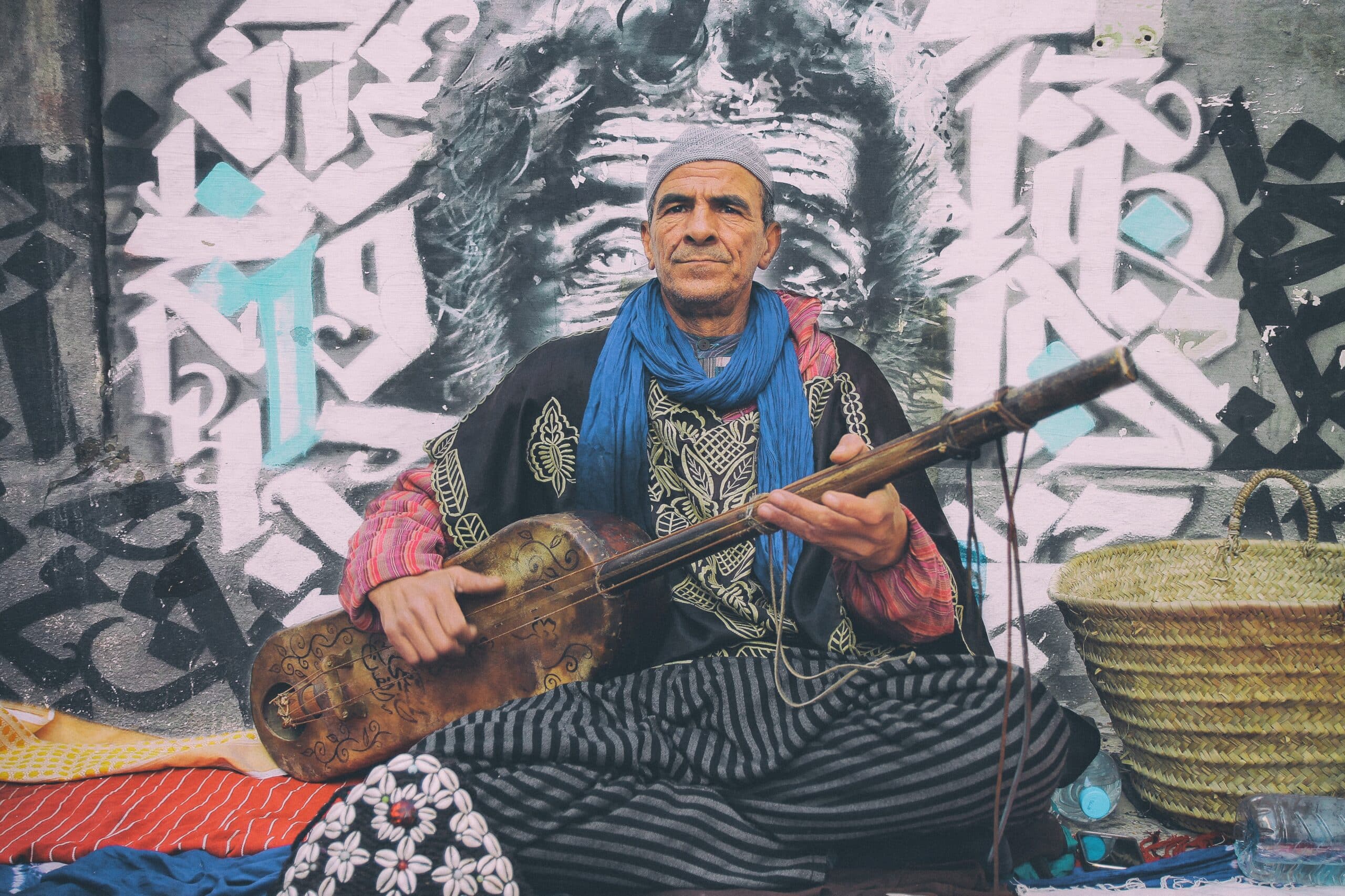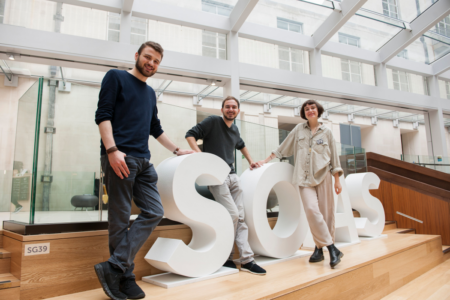The Department of Music at SOAS University of London sings the tunes of the world. Located in one of the world’s most multicultural cities, it is a world-leading centre for the study of music from Asia, Africa, the Middle East and their diasporas. There’s no deferring to Western music here. Instead, it’s the reverse — offering a global perspective few other music schools can replicate.
Programmes focus on regions not found anywhere else. As a student here, you would explore music from South Sudan, Zimbabwe, Pakistan, Morocco, and more.
For Peruvian student Jorge Olazo, it was the department’s expertise in African music and culture that struck a chord with him. As the subject was almost unheard of in his home city Lima, he was glad he found SOAS and a programme that satisfied his intellectual curiosities. What he loved even more was how he got to be part of an exciting community of musicians and researchers from all over the world.

In this programme students gain a practical understanding of how music can work in the sphere of social development and an in-depth study of global musical styles. Source: SOAS University of London, School of Arts
“In the music department I had the opportunity of joining multiple ensembles, such as the Kora group (Mande strings) and the Middle Eastern Ensemble,” says Olazo. “I had the chance of finding myself on stage several times with these groups, and also to broaden my understanding of different musical cultures.”
The school balances theory and regional expertise, ensuring that practice and performance are equally explored. You are not limited to traditional music at SOAS, but can explore how it evolves across the global south. From popular music and experimental sound arts to global hip-hop, there is no shortage of new and fresh classes to dive into.
This allows students to think outside the box. “I’m currently working on a book about the links between jazz, world music and the Peruvian traditions. Its conceptualisation and framework have been constantly informed and influenced by readings and talks I had during my time as a postgraduate student at SOAS,” says Olazo.

You will study with a world-leading group of ethnomusicologists who are all experts in the musical traditions of Africa and Asia. You will be part of a thriving culture of performance, research and active engagement with music around the globe. Source: SOAS University of London, School of Arts.
What better way to explore a culture than by how it expresses its emotions and beauty through sounds? Students like Olazo get to do this alongside people like Kadialy Kouyate for kora and Sanju Sahai for tabla. At events, many other professionals in the industry are invited to share their insights and art. “I think that having the opportunity to choose an external instructor for the learning of your chosen instrument is a great feature of the Music department’s postgraduate programme,” adds Olazo.
For Olazo, events such as the department’s concert at Royal Academy of Dramatic Arts (RADA) helped him network and collaborate with professionals in the music world. “There were multiple events such as concerts like the Acoustic Evenings, the multiple shows in the Brunei Gallery, and the Masterclasses that took place once a week with experts and academics via Zoom or in person,” he says. “This was all very helpful to understand multiple aspects of the music industry and academia.”
As the school is based in central London, many major artists on global tours drop by to visit the department and run exclusive workshops. There is also the SOAS Concert Series which features international music legends. These networking opportunities and experiences are especially useful for those who wish to take on the MA Music programme.

The Department of Music has been ranked best in the UK for research impact and 5th overall in the Research Excellence Framework (REF 2021). Source: SOAS University of London, School of Arts
This international master’s gives you a theoretical and practical grounding in the discipline of ethnomusicology. As students develop performance and ethnographic skills, they hone research know-how in the department’s areas of specialisation, such as ethnomusicology, global music history, heritage and sustainability, and performance. In fact, the Department of Music has been ranked best in the UK for research impact and fifth overall in the Research Excellence Framework (REF 2021).
Whether you have studied music formally or informally before, this master’s programme is open to you. A first degree in music is not a prerequisite as students with backgrounds in biomedical sciences, international relations, literature and more have found a place in this programme.
However, if you are looking to achieve your first degree in music, SOAS has a few programmes to choose from. The BA in Music and… is as unique as its name. It’s a combined degree to broaden your understanding of global cultures. Popular joint degrees include Music and Social Anthropology; Music and Korean; Music and World Philosophies. Whichever you choose, you’ll find an education that inspires mind, body and soul — the school has received 100% overall student satisfaction (NSS 2021).
If you are looking to study music alongside the history of art, film and screen studies and creative industries, the BA Creative Arts and Cultural Industries is a great option. Here you can tailor your degree to specific regional or thematic interests through wide-ranging options from across the School of Arts and other departments at SOAS.
Ready to explore a musical journey at SOAS University of London? Click here to apply now.
Follow SOAS University of London on Facebook, X, LinkedIn, Instagram and YouTube.












